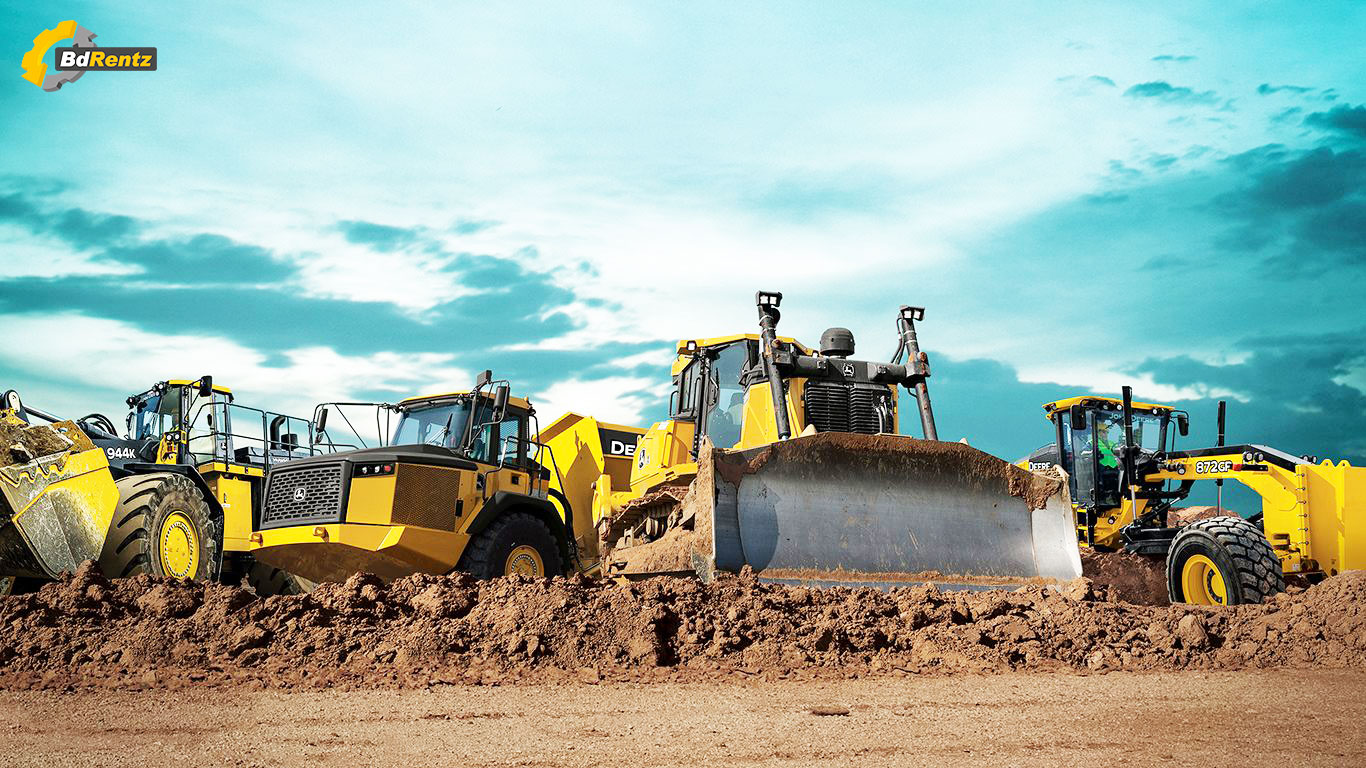Mini Excavator Rental: Compact Machines for Strict Spaces
Mini Excavator Rental: Compact Machines for Strict Spaces
Blog Article
Optimize Your Budget Plan by Understanding the Prices Related To Building Devices Rentals
Recognizing the complete range of costs related to building and construction devices rentals is crucial for optimizing your budget plan. While the initial rental cost may appear simple, various additional expenditures-- such as transportation, gas surcharges, and upkeep-- can swiftly build up, influencing your monetary planning. Being conscious of different costs and the details of rental arrangements can assist stay clear of unanticipated monetary problems. What strategies can be employed to effectively take care of these prices and make certain a more effective rental experience?
Review of Rental Expenses
When taking into consideration building equipment rentals, comprehending the connected costs is extremely important for efficient budgeting and task preparation. Rental prices can vary considerably based on numerous elements, including devices kind, period of rental, and location. The first rental cost often mirrors the tools's market demand and its associated functional abilities, influencing the general expenditure.
In enhancement to the base rental price, supplementary costs may emerge, such as transport fees, gas additional charges, and maintenance costs. It is important to represent these added expenses to properly examine the overall cost of leasing tools. Furthermore, the rental period can impact pricing; longer leasings might certify for reduced rates, while short-term rentals might sustain greater day-to-day costs.

Breakdown of Rental Rates
An extensive understanding of rental prices is vital for specialists and project supervisors intending to optimize their budgets. Rental prices for building and construction equipment typically contain numerous components, consisting of base rates, time-based costs, and use costs.
Base rates are the core costs connected with the leasing of the devices, frequently figured out by the kind and size of the machinery. These prices can differ substantially, influenced by elements such as equipment need, availability, and regional market patterns. Time-based costs, which may be daily, weekly, or monthly, serve to suit different task timelines and rental durations.
Furthermore, rental prices may consist of use charges, which are applicable when tools is utilized past a defined limit, ensuring that the rental firm can represent damage. Seasonal demand fluctuations can additionally affect rental rates, with peak building and construction seasons usually commanding greater prices.
In addition, comprehending the rental company's plans relating to maintenance and insurance can offer further insight into the overall expense framework. By analyzing these components, service providers can make enlightened decisions, guaranteeing the selection of rental tools aligns with both project needs and budget plan constraints.
Extra Charges to Consider
Comprehending the complexities of additional charges is essential for professionals to handle their total rental expenditures effectively. Past the typical rental prices, various additional fees can dramatically affect the total price of equipment leasing. These fees often include distribution and pickup fees, which can vary based upon range and logistics associated with delivering the devices to and from the work site.
Moreover, some rental companies may impose fuel additional charges if the devices is returned with less fuel than when leased. It is additionally necessary to recognize prospective cleaning charges, especially for customized tools that needs comprehensive upkeep after usage.

Completely assessing the rental arrangement and clearing up these extra fees ahead of time can aid contractors ensure and prevent unanticipated expenses that budget plans remain intact throughout the task lifecycle.
Upkeep and Repair Service Expenditures
Normal maintenance and repair expenses are often ignored aspects that can dramatically affect the general price of building equipment services. When renting out tools, it is vital to consider not just the rental charges however additionally the possible prices related to keeping the equipment in optimal operating problem.
Numerous rental firms include basic upkeep as part of the rental agreement; nevertheless, much more considerable fixings or unforeseen break downs can lead to extra costs. It's important to evaluate the rental contract meticulously to understand what upkeep solutions are covered and what responsibilities fall on the occupant.
In addition, tools that is not properly maintained can lead to ineffectiveness on the work site, possibly causing hold-ups and increasing project costs. To alleviate these risks, it is advisable to perform normal inspections and keep open interaction with the rental supplier regarding any kind of concerns that occur during usage.
Insurance and Responsibility Costs
Insurance policy and responsibility prices are essential parts that can dramatically influence the overall cost of building and construction equipment rentals (forklift rental). These prices ensure that both the rental company and the customer are shielded from potential monetary losses occurring from mishaps, damage, or theft during the rental duration

In addition, customers ought to understand any kind of deductibles or exemptions in the insurance plan, as these can affect prospective out-of-pocket expenses. Understanding the conditions of any kind of insurance policy protection is vital to avoid unanticipated costs. Eventually, budgeting for insurance and obligation costs can aid guarantee a smoother rental experience and safeguard against backhoe monetary threats associated with building tasks.
Conclusion
In conclusion, an extensive understanding of the costs connected with building and construction devices services is vital for reliable budget plan monitoring. Eventually, notified decision-making relating to tools rentals adds to the overall success of building and construction ventures.
Rental expenses can differ significantly based on numerous factors, including tools kind, duration of leasing, and area (construction equipment rentals). The rental duration can influence rates; longer services might qualify for affordable prices, while short-term leasings might sustain greater day-to-day costs
By carrying out complete study and involving with respectable rental business, professionals can properly navigate the complexities of rental prices, heavy machinery rental companies eventually optimizing their economic resources.
Beyond the conventional rental rates, different extra costs can substantially impact the overall price of tools leasing. Rental firms commonly give liability insurance policy that covers injuries to 3rd parties or damage to property, while equipment damages insurance policy can cover the expense of repair services or substitute if the rented tools is harmed.
Report this page